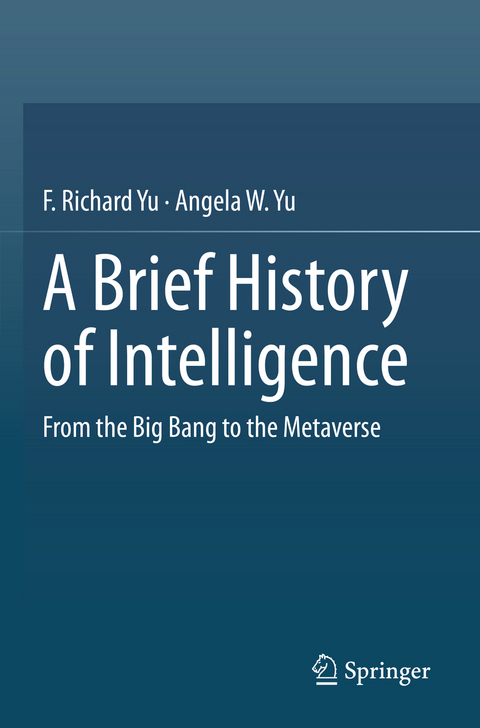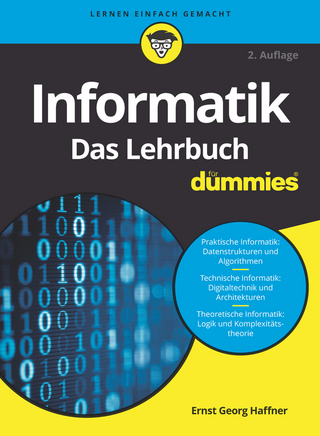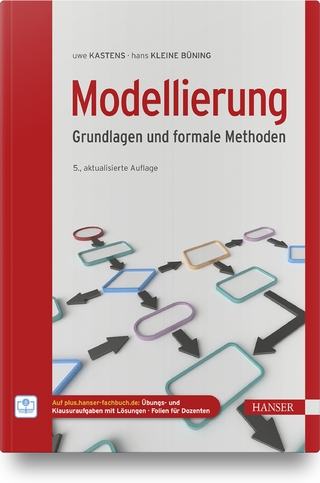
A Brief History of Intelligence
Springer International Publishing (Verlag)
978-3-031-15953-4 (ISBN)
This book introduces a variety of intelligence phenomena starting from the birth of the universe, including intelligence in physics, intelligence in chemistry, intelligence in biology, intelligence in humans and intelligence in machines. It uncovers the mystery of intelligence to the world and explores the natural phenomenon of intelligence. If understanding intelligence is regarded as a journey of a thousand miles, then this book is the first step to try. In the process of studying the phenomenon of intelligence and the nature of intelligence, our eyes cannot be limited to human intelligence. Instead, one should put our vision beyond human intelligence, consider different things in the universe, reach a new level, and study and explore the phenomenon of intelligence and the essence of intelligence on a new level.
By looking at the various phenomena of intelligence since the birth of the universe, readers can see that intelligence is a natural phenomenon, similar to other naturalphenomena (e.g., the rolling of rocks and the melting of snow and ice). These phenomena occur to facilitate the stability of the universe, and the phenomenon of intelligence is no exception. The book is divided into 10 chapters, covering matter, energy and space in the origin of the universe, gravity in physics, the principle of least action, dissipative structures in chemistry, entropy increase, maximum entropy production, the definition of life, the emergence of life, the intelligence in plants, the intelligence in animals, the neocortex structure of the brain, the special thinking of human beings, the theory of the brain, artificial intelligence symbolism, connectionism, behaviorism, artificial general intelligence, metaverse, etc.This book can be used as a reference for students and researchers working in the artificial intelligence areas. It is also positioned as a popular science book interested in intelligent phenomena.
F. Richard Yu received the PhD degree in electrical engineering from the University of British Columbia (UBC) in 2003. His research interests include connected/autonomous vehicles, artificial intelligence, cybersecurity, and wireless systems. He has been named in the Clarivate Analytics list of "Highly Cited Researchers" since 2019, and received several Best Paper Awards from some first-tier conferences. He is an elected member of the Board of Governors of the IEEE VTS and Editor-in-Chief for IEEE VTS Mobile World newsletter. He is a Fellow of the IEEE, Canadian Academy of Engineering (CAE), Engineering Institute of Canada (EIC), and IET. He is a Distinguished Lecturer of IEEE in both VTS and ComSoc.
Chapter. 1. Introduction.- Chapter. 2. Stabilizing the Universe.- Chapter. 3. Intelligence in Physics.- Chapter. 4. Intelligence in Chemistry.- Chapter. 5. Intelligence in Biology.- Chapter. 6. Intelligence in Humans.- Chapter. 7. Intelligence in Machines.- Chapter. 8. Matter, Energy, Information, and Intelligence.- Chapter. 9. The Metaverse and the Real-World Universe.- Chapter. 10. Afterword.
"The book will be useful for anyone who is learning to write computer code, to help them understand the importance of writing code in a way that makes it well, structured and efficient. It is good to understand this, in addition to writing code that produces what is required of it." (M. Huntbach, Computing Reviews, August 2, 2024)
| Erscheinungsdatum | 09.12.2023 |
|---|---|
| Zusatzinfo | IX, 112 p. 35 illus., 32 illus. in color. |
| Verlagsort | Cham |
| Sprache | englisch |
| Maße | 155 x 235 mm |
| Gewicht | 201 g |
| Themenwelt | Mathematik / Informatik ► Informatik ► Theorie / Studium |
| Sozialwissenschaften ► Pädagogik ► Erwachsenenbildung | |
| Technik | |
| Schlagworte | artificial general intelligence • Artificial Intelligence • Behaviorism • Big Bang • brain • Connectionism • Dissipative structure • Entropy • Intelligence • Least Action • machine learning • metaverse • Neocortex • Symbolism |
| ISBN-10 | 3-031-15953-5 / 3031159535 |
| ISBN-13 | 978-3-031-15953-4 / 9783031159534 |
| Zustand | Neuware |
| Informationen gemäß Produktsicherheitsverordnung (GPSR) | |
| Haben Sie eine Frage zum Produkt? |
aus dem Bereich


